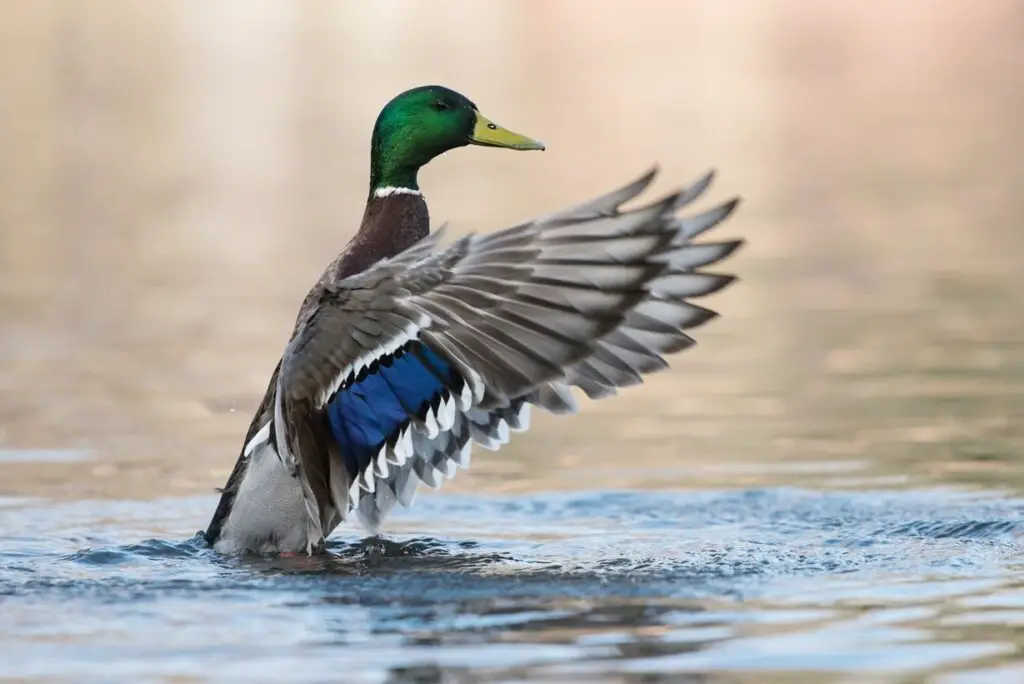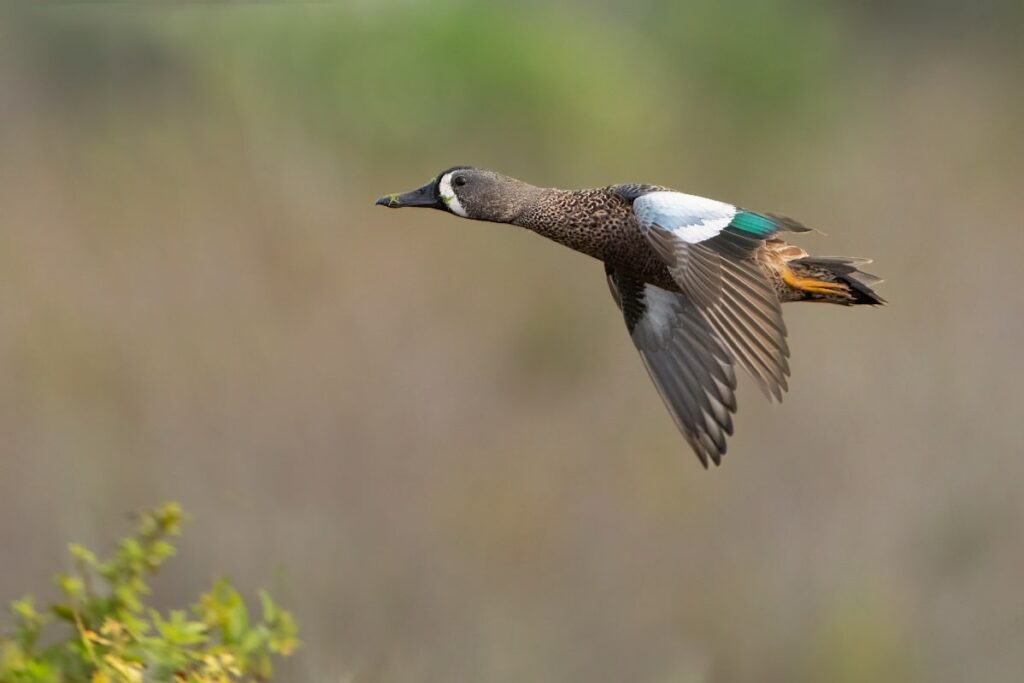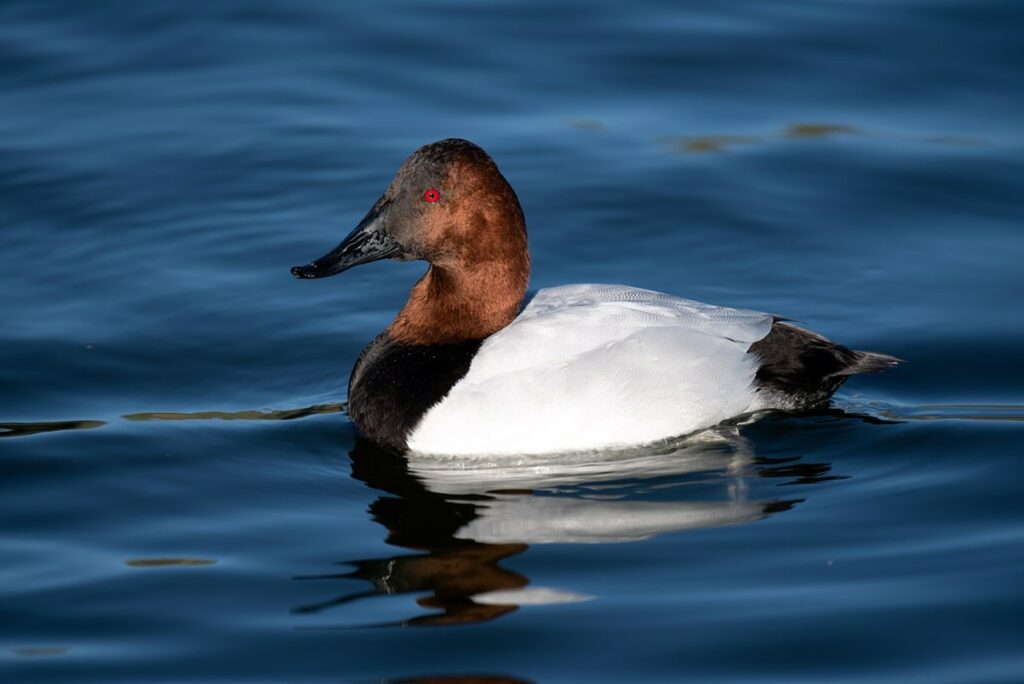Ducks are small waterfowl that live on every continent and in every type of water, including lakes, ponds, rivers, and oceans. They have adapted to life in many climate types as long as they have constant access to a water source.
The lifespan of a duck varies, on average, from five to ten years, depending on the environment in which they live. When ducks consistently find plentiful food, they live longer. High concentrations of predators or stressors in an area cause a shortened lifespan for many ducks.
Ducks are prolific breeders, laying an average of eleven eggs and raising many offspring. They take good care of their young until they can live independently. These two characteristics allow many duck species to proliferate and survive in a dangerous world.

How Long Do Captive Ducks Live?
Muscovy Ducks are the most popular species of farm duck in the world for their meat and eggs. Farmers who raise this species usually have them for eight to twelve years before they die.
Pekin Ducks, also a popular farm breed, may only live for five to ten years, depending on their living conditions, although some farmers claim they have had Pekin Ducks live for more than twenty years.
Other popular farming breeds, such as Call, Khaki Campbell, Welsh Harlequin, and Indian Runner, can live anywhere from five years to twelve years, depending on the living conditions on the farm.
Several things can shorten the lifespan of a farm duck. Predation is the number one cause of death for captive ducks. Because they cannot fly, they cannot easily evade or escape predators that invade their pen.
Captive ducks can also die from illness and extreme temperatures. While they may experience longer lifespans than wild ducks, they are sometimes more prone to death on farms without good predator-proof fencing or a place to stay warm or cool in extreme temperatures.
How Long Do Wild Ducks Live?
Mallard Ducks in the wild live for at least five years, although some individuals can survive up to ten years or more. Young ducks sustain heavy losses before their first year; however, once they reach adulthood, they are more likely to survive for several years.
Many other duck species are also long-lived. Wood Ducks and Goldeneyes can live up to fifteen or eighteen years, depending on the species. Some Whistling Duck species have similar lifespans of fifteen years, while others have shorter lives of no more than eight years.
What Kills Ducks?
Ducks are susceptible to death from predation, disease, and extreme weather events. Duck eggs are easy prey for several animals, including foxes, raccoons, snakes, opossums, coyotes, dogs, and skunks.
Ducklings often fall prey to some of the same predators that eat duck eggs and additional animals, including owls, hawks, turtles, otters, crows, and large fish. The world for young ducks is a dangerous place.
Ducks also die from fights that result from territorial disputes with other ducks, geese, swans, and loons. Female ducks sometimes drown when mating because the males climb on the females’ backs while swimming.
Fewer animals prey on adult ducks. The animals that can kill adult ducks include herons, hawks, eagles, owls, dogs, and large fish like northern pike and muskellunge. The biggest predator of adult ducks is humans.
Duck hunting is a treasured pastime for generations of hunters across the United States and Canada. State, provincial, and federal authorities strictly control which duck species they can harvest and how many each hunter can shoot to prevent overhunting duck populations.
Many diseases also cause death in wild ducks, including Avian influenza, plague, encephalitis, and botulism. In addition, extreme weather events such as sudden severe storms, hurricanes, and blizzards can also kill ducks caught in the weather without shelter.
What Is the Oldest Duck?
Scientists banded a Mallard that lived to be 26 years old, the oldest known wild Mallard. Captive Mallards can also live a long time if they are well-cared for by their owner.


The oldest living Blue-winged Teal was more than 23 years old. Researchers banded it in Canada, and a hunter harvested it in Cuba. The oldest duck ever recorded was a 29-year-old Canvasback that a hunter harvested during hunting season.
